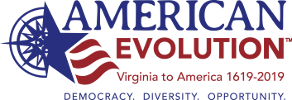This election return records Lancaster County’s votes for the House of Burgesses on December 2, 1768. By Virginia law, each county selected two men to serve in the House of Burgesses, who with the Governor and the Governor’s Council comprised Virginia’s General Assembly.
Elections did not take place annually or even regularly; they usually occurred following the governor’s dissolution of the Assembly and call for a new one or the death or resignation of a burgess. Directed by a writ from the governor and his Council, the county sheriff posted notice of the election date at courthouses and ordered that the notice be read in parish churches in the Sundays leading up to the election.
The right to vote in colonial Virginia was limited to freeholders, or white males who owned certain amounts of land either outright or through a lifetime lease. By 1736 Virginians had to own at least 100 acres of unimproved land or 25 acres of improved land for at least one year before an election.
Sheriffs conducted elections at the county courthouse. There was no private ballot: freeholders cast their votes aloud, directly in the presence of candidates who employed clerks to record the poll. In a practice known as “treating,” candidates often provided alcohol and food to voters, both opponents and supporters, before (legal if done before the sheriff announced the writ calling for elections) and after elections but even on election day itself.
On this day in Lancaster County, voters elected Colonel James Ball and Charles Carter to represent them in Williamsburg. Note that the first two names recorded under Ball’s and Carter’s polls were those of the local clergymen: Church of England minister David Currie and Presbyterian minister James Waddell.
Learn more here: Encyclopedia Virginia: Elections in Colonial Virginia




